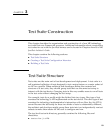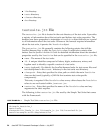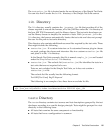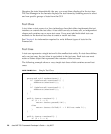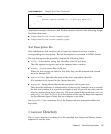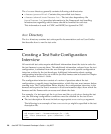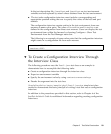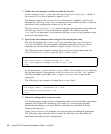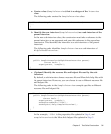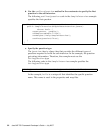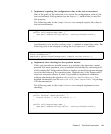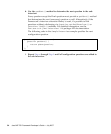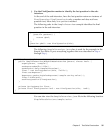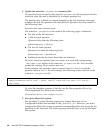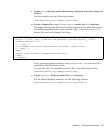
30 Java ME TCK Framework Developer’s Guide • July 2007
1. Define the environment variable required by the test.
In the example (Test2.java), the test case SampleStringValue() checks if
the sampleValue that is passed in equals Hello.
The harness requires the sampleValue environment variable to run the test.
Because the value for sampleValue cannot be known ahead of time, it must be
provided in the configuration interview by the user.
The decodeArg(String[],int)method decodes the argument and passes the
value to the sampleValue environment variable. The harness uses the
-stringValue argument in accordance with the executeArgs argument entry
in the test description file.
2. Specify the environment value using the test description entry.
The test description file (index.html) can use either the executeArgs or
context to identify the environment variables required by the test. In our
example, the environment variable is called sample.string.value.
The following is an example of using the executeArgs argument (also see
SimpleTestSuite/tests/sample/pkg2/index.html).
As an alternative, you can use the context field. If you use the context field in
the test description, the argument in the decodeArgs(String,int) method
must be changed accordingly with -sample.string.value used as the
argument.
The following is an example of using the context field.
3. Write the configuration interview class.
The Framework provides a basic configuration interview that defines parameters
common for all Java ME technology test suites. If your test suite requires
additional parameters, you must create a sub-interview and link it to the
Framework interview.
In the SampleInterview example, the test requires an additional parameter.
The following steps describe how to create the sub-interview that adds the
additional parameter to the configuration.
<tr>
<td scope="row"> <b>executeArgs</b> </td>
<td> -stringValue $sample.string.value </td>
</tr>
<tr>
<td scope="row"> <b>context</b> </td>
<td> sample.string.value </td>
</tr>




